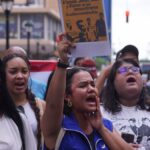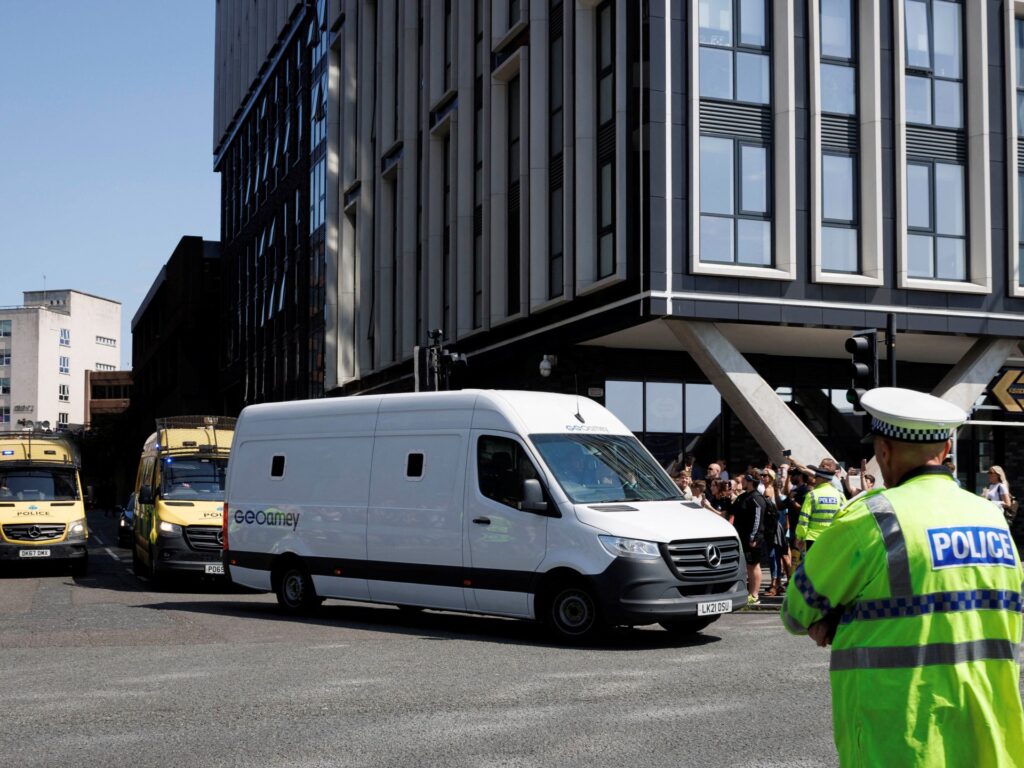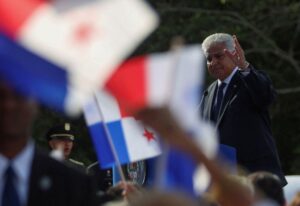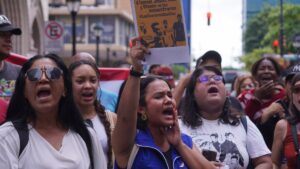
Axel Rudakubana, 18, did not speak when asked at Liverpool Crown Court if he was guilty of killing Alice Dasilva Aguiar, 9, Elsie Dot Stancombe, 7, and Bebe King, 6.
A British teenager had “not guilty” pleas entered on his behalf to charges of murdering three young girls in a knife attack in northern England in July, a crime that horrified the country and was followed by days of nationwide rioting.
Axel Rudakubana, 18, did not speak on Wednesday when asked at Liverpool Crown Court if he was guilty or not guilty of killing Alice Dasilva Aguiar, 9, Elsie Dot Stancombe, 7, and Bebe King, 6, who were at a Taylor Swift-themed dance event in Southport.
“Not guilty” pleas were also entered over charges of 10 attempted murders, producing the deadly poison ricin and the possession of an al-Qaeda training manual. The defendant is due to go on trial in January.
British-born Rudakubana, who was 17 at the time, was arrested shortly after the attack in the seaside town north of Liverpool. Police have said the incident was not being treated as terrorist related.
Large disturbances broke out in the town after false reports spread on social media that the suspected killer was a Muslim immigrant.
Advertisement
The disturbances spread across Britain, which saw attacks on mosques and hotels housing asylum seekers, with Prime Minister Keir Starmer blaming the riots on far-right thuggery.
The disorder quickly morphed into widespread anti-immigration rioting, England’s worst disturbances in more than a decade.
Police ‘failed’ in response to disorder
A watchdog report on Wednesday said UK police underestimated “the rising tide of violence” that culminated in the riots and failed to mitigate against online misinformation that helped fuel them.
The report by the emergency services watchdog into the police response found intelligence “gaps” and failures to understand and curb misinformation spreading on social media, as well as operational errors.
“Social media played a massive role, and unfortunately, the intelligence processes that were in place prior to this didn’t pick up sufficiently some of the warning signals that had occurred over the previous 24 months,” Chief Inspector of Constabulary Andy Cooke told BBC Radio.
“No one understood or could counter the emerging cause and effect of that misinformation and disinformation,” the head of His Majesty’s Inspectorate of Constabulary and Fire and Rescue Services (HMICFRS) added in the assessment.
“So the police failed adequately to denounce it or mitigate against it in real time to deter or curtail the disorder.”
The HMICFRS report also found police intelligence assessments failed to spot that various violent events in 2023 and in the first half of this year were indicators of likely future disorder.
Advertisement
“Our assessment of these incidents suggests that the risks of disorder were greater than the police believed them to be,” the report said.
“They involved extreme nationalist sentiment, aggravated activism or serious disorder.”
Meanwhile, police leaders made the decision to coordinate and mobilise specialist public order officers “too late”, after days of disturbances, according to the report.
Cooke called for a national coordinator in charge of instructing England’s various police forces to provide mutual aid in such circumstances.











More Stories
Panama commemorates canal handover despite Trump’s call for US control
Ecuador confirms charred bodies belong to four missing boys
Syria de facto leader al-Sharaa meets Christian clerics